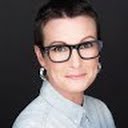Diversity and Inclusion: What Speech Pathologists and Audiologists Need to Know
Abstract
In order to meet the needs of their diverse patient/client population, speech pathologists and audiologists must first understand the ways in which diversity and inclusion relate to their clinical and/or educational practice. In this interactive session, participants will first assess their perceptions of and practices with culturally/ linguistically diverse populations using tools developed by the American Speech-Language-Hearing Association (ASHA). Participants will then learn about the link between inclusive care and patient/client outcomes and the ways in which they can employ specific strategies for making the intake, care delivery, and documentation process more inclusive and respectful of patient diversity. This session uses a combination of lecture, reflection/self-assessment, think-pair-share, and large group discussion.
Learning Outcomes
At the conclusion of this session, participants will be able to:
- Define “diversity” and “inclusion” as it relates to their clinical and/or educational practice;
- Identify the relevant research supporting the link between inclusive care and speech & hearing patient outcomes; and
- Describe specific strategies for making the intake, care delivery, and documentation process more inclusive and respectful of patient diversity.
Download the flyer for more information
Biographical Sketch
Kimberly D. Acquaviva, PhD, MSW, CSE is a tenured faculty member at the George Washington University School of Nursing. As a social worker teaching within a school of nursing, her scholarship is interdisciplinary and collaborative. Her scholarly work focuses on LGBTQ aging and end-of-life issues, and her clinical work has been with patients and families facing life-limiting illnesses in both hospital and hospice settings. Her book, LGBTQ-Inclusive Hospice & Palliative Care: A Practical Guide to Transforming Professional Practice, will be published by Harrington Park Press and distributed byColumbia University Press in Spring 2017.
Dr. Acquaviva served as a Special Government Employee on the National Advisory Council on Aging (NACA), advising the Secretary of the U.S. Department of Health and Human Services, the Director of the National Institutes of Health, and the Director of the National Institute on Aging on its mission. Her term on the NACA ended December 2016. Prior to her appointment to the NACA, Dr. Acquaviva completed a two-year term as Chair of the Friends of the National Institute on Aging, a broad-based coalition of almost 50 aging, disease, research, and patient groups supporting the mission of the National Institute on Aging. Dr. Acquaviva led the coalition in efforts to advocate on behalf of the NIA through the annual congressional budget and appropriations process and to promote NIA research activities through congressional briefings.
Dr. Acquaviva has a Ph.D. in Human Sexuality Education from the University of Pennsylvania Graduate School of Education, an M.S.W. from the University of Pennsylvania School of Social Policy and Practice, and a B.A. in Sociology from the University of Pennsylvania College of Arts and Sciences. She is an AASECT-Certified Sexuality Educator.


